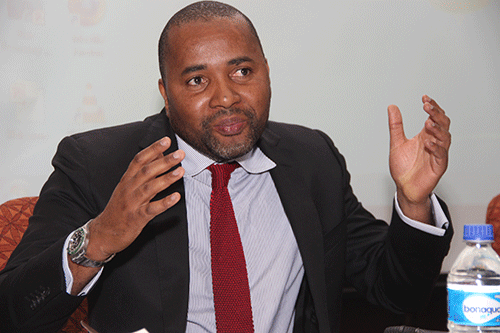The Presidency has questioned the veracity of newsrooms, claiming that certain reporters and editors have reneged on the fundamental principles of journalism as a discipline of verification and are not being truthful.
“Unfortunately, but not unsurprisingly, certain newspapers feel no obligation to the truth and have in the process abandoned the core principles of journalism by posing bias and opinions as news,” presidential spokesperson Alfredo Hengari said yesterday.
He made these remarks while responding to “certain English dailies” that he accused of being in campaign mode by intentionally publishing misleading articles that cite bits from statements made by President Hage Geingob on various platforms.
Hengari specifically cited two issues, namely the effects of colonialism and mushrooming informal settlements, that he said have enjoyed press headlines with the clear objective of creating a certain impression about Geingob allegedly blaming colonialism for the numerous challenges facing the nation.
“Regrettably, certain newspapers frame these issues lightly and unreflectively in terms of their impact on public policy and the transformation agenda President Geingob has been pursuing since 2015,” he said.
Hengari noted there are facts that cannot be contested or erased in the history of what is today, Namibia.
In 1886, he explained, following the Berlin Conference, Namibian territory was annexed as a colony of Imperial Germany.
“It is safe to assume that some reporters don’t know the fact that among all the colonies, German colonialism in Namibia was the most brutal and its impacts on the livelihoods have been the most atrocious, with the first genocide of the 21st century and similar massacres committed against Namibians,” he said.
Many people, Hengari said, of the territory were displaced from their land, robbed, enslaved, and chased into desert lands with limited potential for continuity of their subsistence farming.
Following the brutality of Imperial Germany, Hengari said the territory of South West Africa was placed under the South African regime in 1915, which unleashed another chapter of violence through the policy of apartheid, deepening inequalities and creating ethnic Bantustans through the ghastly Odendaal Commission of 1964, of which the perverse effects of ownership are visible today. “No editorials or headlines are dedicated to these perversities of the past and how they undermine nation building. There is no headline or cries of a scandal when a German family sells tracts of stolen land in Windhoek for N$300 million,” he stressed.
He further emphasised that the dehumanising effects of apartheid and separate development are still evident in such transactions.
Yet, he said, blacks have been signed up as apologists and afro-pessimists, made to behave as if Namibia didn’t experience the longest period of brutal occupation in the form of colonialism.
Hengari said when one considers the fact that the Namibian territory was barbarically colonised in 1886 and only became independent in 1990, a basic count arrives at over a century of colonial domination of the black majority by racists who had no regard for the lives of the indigenous population.
According to him, the black majority went through 104 years of racial inequalities.
“Economists and economic historians, including the Nobel in Economics, Thomas Piketty, have strenuously traced the history of inequality to patterns of property ownership dating back centuries,” he said. Yet, he said The Namibian and Namibian Sun report spuriously and falsely that explaining inequality and poverty within the context of a century of colonialism is “blaming colonialism” for the country’s
ills.
In fact, he said Geingob, with the experience and education that he brings to the table, is not in a position to frame a problem in such simplistic terms.
“Yes, our housing challenges and our spatial and economic inequalities are structural. And yes, they are a consequence of beasts with names, 104 years of brutal German Imperialism and South African apartheid occupation,” he added.
He said since white people have perpetrated the historical inequalities, certain newspapers have adopted editorial policies to never attribute the country’s inequalities by their right name as racial injustices.



